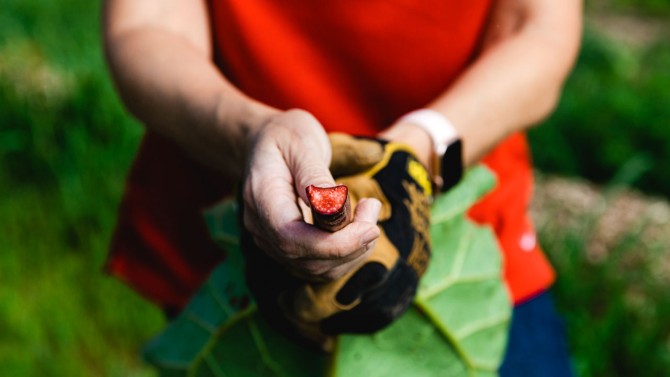A mummified pig foetus, live squirrels, deer genitalia and freeze-dried quails-these are just a few of the interesting items intercepted by Australian biosecurity officers over the years.
A/g Head of Biosecurity at the Department of Agriculture, Water and the Environment, Dr Chris Parker, said the department went into the archives to find the strangest items intercepted at the border.
“Our work at airports and mail centres helps protect Australia from biosecurity risks that might arrive with passengers or mail parcels,” Dr Parker said.
“While COVID has impacted on the number of passengers arriving, we have continued to intercept food, meat and seeds.
“These are some of the more common risk items we intercept at airports and mail centres, but we have also seen our fair share of interesting finds.
“Recently officers at the mail centres came across a mummified pig foetus and freeze-dried quails, which could both pose an animal health risk.
“Quails and other poultry can carry Avian Influenza, which is a serious disease of poultry and can cause high mortality in production birds.
“A few years back we also intercepted deer genitalia at Cairns Airport, which could carry animal biosecurity risks, including foot and mouth disease.
“One of the more surprising and serious cases at our airports was back in 2018, when an Australian resident arrived from Bali with live squirrels concealed on their body.
“Squirrels can carry rabies-which is present in Bali-and if this disease was to arrive here the toll on human and animal health would be huge.”
Other notable interceptions over the years have included:
- Succulents concealed in soft toys
- Taxidermy black bear, baboon, alligator, and marmoset
- Taxidermy rear end of a rat with a modelled mouth with prosthetic teeth
- Dead bats and bat bones
- Roasted otter
- Ducks tongue
- Chicken feet
- Dead King Cobra
- Dried frogs and dried rat
- Goat foetus
- Skinned frogs
- Monkey bones
- Pigs hoof
- Tarantulas
- Horse dung
“The volume of mail arriving in Australia is increasing and we will see passenger numbers grow. This means the biosecurity risks facing Australia will also increase,” Dr Parker said.
“This is why it is so important that everyone follows our biosecurity conditions when travelling or importing goods to Australia-including online shoppers.
“By being biosecurity aware and following our conditions, you can save yourself time, money and avoid some serious penalties.”
For more information on items that are a biosecurity risk and may not be permitted into Australia, visit awe.gov.au/travelling.
For more information on interesting items intercepted at the border, visit the Australian Biosecurity Facebook page.
Fast facts
- In 2020, more than 60,000 parcels that were a potential biosecurity risk were intercepted at Australia’s international mail centres.
- This includes 55,000 parcels containing seeds and 3,000 containing pork products.
- In 2021 to date, 3D x-rays at Australia’s international mail centres have intercepted 380 kilograms of meat items in mail parcels, including 41kg of pork.
- There are strict penalties for people that are found to breach Australia’s biosecurity conditions. This includes infringement notices and prosecution.
- International travellers can have their visas cancelled for more serious biosecurity-related offences – since October 2019, 14 visas have been cancelled on biosecurity-related grounds.








